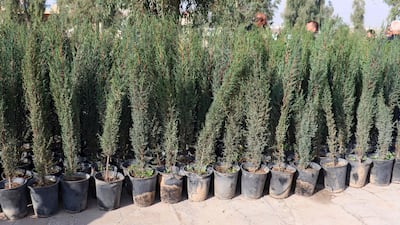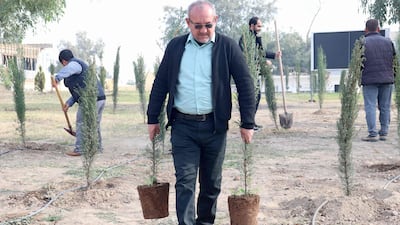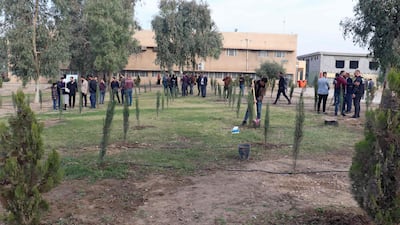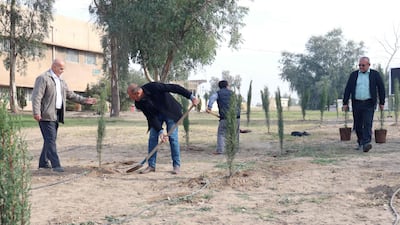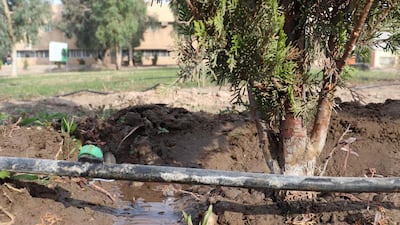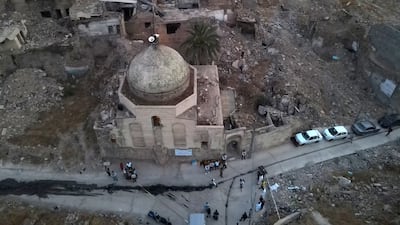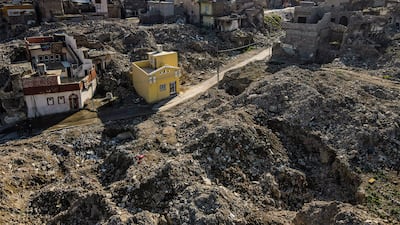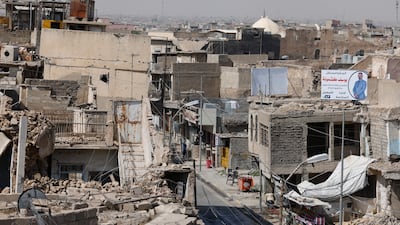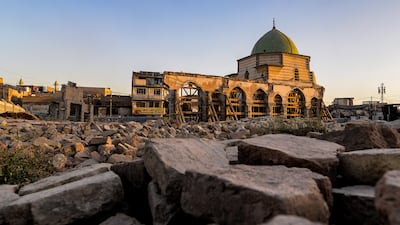More than 5,000 trees are being planted across the war-torn Iraqi city of Mosul as part of a climate initiative that began with a single tweet.
Cypress and pines, lemon and orange trees will be planted in 12 zones across the northern city, including on sites of importance to Christian, Muslim and Yazidi communities in an effort to bring people together and create a healthier environment.
The initiative was started by the Mosul Eye, an online blog founded by Omar Mohammed when his city was occupied by ISIS in June 2014. The three-year occupation destroyed swathes of the city and led thousands to flee their homes. Some are only now returning.
“It’s time to put Mosul on the world map,” said Mr Mohammed. “We need to move beyond humanitarian projects. We can’t just be a postwar city.”
He said the project would bring the city into the global discussion about how to tackle climate change.
Historically, the city was referred to by its residents as Green Mosul, Mr Mohammed told The National.
But long-term conflict and climate-change induced problems including pollution, desertification and flash flooding took a toll.
Mr Mohammed said when he realised how far the city had fallen from its traditional splendour, “I knew I had to do something”.
After a successful initiative to gather books for the University of Mosul Library, Mr Mohammed decided to try the same approach for sourcing trees to beautify the rubble-strewn streets.
In July 2020 he tweeted a request for help. The French Ministry for Europe and Foreign Affairs’ Crisis and Support Centre offered their support. Trees have also been donated by private Mosul and international donors.
Members of the Green Mosul team, along with the university faculty and students, activists, government officials and international guests began planting the trees after a short ceremony to mark the occasion on Wednesday. It will take until February 2022 to plant the 5,000 donated trees.
Locations for planting include the University of Mosul, Telskuf village and the Sinjar Academy office. Heritage sites including the Mosul Museum and Al Nouri Mosque complex will also have new trees. The sites are currently under reconstruction by Unesco after they were destroyed by ISIS as they left in 2017.
The trees will be watered by a sustainable irrigation system, using recycled water, the project’s founders say.
“The planting will improve the environmental situation especially in terms of air quality as these trees produce thick vegetation,” said project director Anas Al Tayea. “The choice of sites will also contribute to our having a direct environmental impact, as we’ll plant at many populated locations.”
A tribute to Pope Francis
A special tree will be planted for Pope Francis, in Hosh Al Bieaa, the Church Square.
“It will honour the message of his pilgrimage to Old Mosul in March earlier this year,” the Mosul Eye team said. “A message of hope, that, a city so deeply scarred by war and terrorism, can recover anew.”
In addition to its environmental benefits, the Green Mosul initiative is hoped to have a long-lasting positive social impact.
Volunteers from organisations across the city will take part in planting the trees.
Mr Mohammed hopes the planting will also be a part of a brighter future for Iraq’s young population. “Those who grow up with these trees will see a different life,” he said.
“Don’t give up on Mosul and our people. We will not always be just a stronghold of ISIS. I want to change the headlines of my city.”
